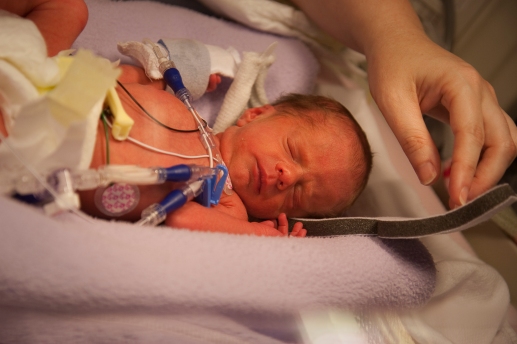With the advent of 3-D printers and similar technology, modern science has come closer and closer to artificially solving medical issues and imitating parts of both the anatomy and physiology of the human body. However, when it comes to issues of reproduction and pregnancy, it’s an entirely different battle.
Attempts to create an artificial womb for human gestation have proven to be be unsuccessful over the last two decades. However, researchers from The Children’s Hospital of Philadelphia were able to create an artificial womb in which premature lambs were able to grow.

A recent article from The New York Times considers the ethical and legal implications of this new technology if it is applied to humans. One of the most likely situations that could arise would be using the artificial wombs for premature infants. An artificial womb could eliminate or address many of the issues and risks that face premature infants in incubators such as undeveloped lungs and neurodevelopmental challenges, and could be a life-saving technology for many. However, artificial wombs would not allow for contact or interaction between parents and infants that can be facilitated with incubators, which is something that is extremely beneficial for both the parents and the infant emotionally and physically.
“When I started my Ph.D. looking into the ethics of artificial wombs in 2009, several people told me that it was purely science fiction, and not anything that will happen anytime soon,” stated Dr. Elizabeth Yuko, Health & Sex Editor for SheKnows Media. She continued, “While the recent trials were conducted on lambs, not humans, the rapid evolution of reproductive technology means ethicists have to stay a few steps ahead of clinical practice.”
Dr. Yuko’s research interests include sexual health and reproductive ethics, human enhancement and research ethics. She adds that she is “thankful to have had the opportunity to address some of these early ethical issues in The New York Times.”
Elizabeth Yuko, Ph.D. is a bioethicist and writer, the Health & Sex Editor for SheKnows Media, and Adjunct Professor of Ethics at Fordham University. Elizabeth is the former Program Administrator for the HIV and Drug Abuse Prevention Research Ethics Training Institute at Fordham University’s Center for Ethics Education as well as the founding editor of the Ethics and Society blog. ![]()
Written By Fordham University Center for Ethics Education
It’s Not Science Fiction: Ethics of Artificial Wombs was originally published @ Ethics and Society and has been syndicated with permission.
Our authors want to hear from you! Click to leave a comment
Related Posts




